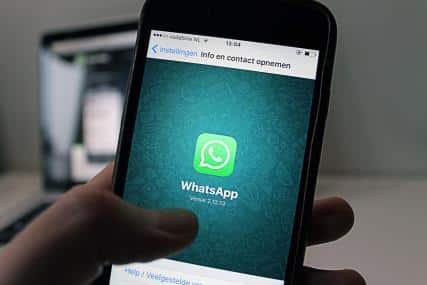Before delving into the meaning of a changed security code, it’s crucial to understand how WhatsApp protects your messages. The platform employs end-to-end encryption, a robust security measure that ensures only you and the recipient can read your messages. This means that even WhatsApp cannot access the content of your chats.
The encryption process involves unique keys for each conversation. These keys are constantly changing, adding an extra layer of security.
What is a WhatsApp security code?
A WhatsApp security code serves as a distinct identifier associated with a particular conversation. Complex cryptographic algorithms generate it, ensuring the integrity of your chats.
Why does the security code change?
The notification “Your security code with [contact name] has changed” simply signifies an update to the encryption key for that specific conversation. This is a normal and expected occurrence.
Here are the most common reasons for a security code change:
- WhatsApp Reinstallation: If your contact reinstalls WhatsApp on their device, it will generate a new security code for all their chats.
- Switching to a new phone necessitates reinstalling WhatsApp, which results in a new security code.
- Paired Device Changes: Adding or removing a linked device, such as WhatsApp Web or a desktop app, can trigger a security code change.
- WhatsApp Updates: Sometimes, WhatsApp updates can result in new security codes for enhanced protection.
Is a change to the security code a cause for concern?
Generally, no. A security code change is a standard part of WhatsApp’s encryption process and doesn’t necessarily indicate a security breach. Indeed, it serves as an indication that robust encryption is safeguarding your conversations.
However, it’s always a good practice to verify the new security code with your contact to ensure their account hasn’t been compromised.
How to Verify a Security Code
WhatsApp provides a straightforward method to verify the security code of your contacts:
- Open the chat with the contact whose security code has changed.
- Tap on the contact’s name at the top of the chat.
- Select “Security code.”
- Verify the security code your phone displays against the one your contact provided.
If the codes match, it confirms that the security code change is legitimate. If there’s a discrepancy, it could indicate a potential security issue, and you should exercise caution.
Protecting yourself from WhatsApp scams
While security code changes are usually harmless, it’s essential to remain vigilant against potential scams. Here are some tips to protect yourself:
- Enable Two-Factor Authentication: This adds an extra layer of security to your WhatsApp account, making it difficult for unauthorized access.
- Be wary of unverified contacts. Avoid sharing personal information with contacts you don’t know or trust.
- Beware of Phishing Attempts: Be cautious of suspicious links or messages claiming to be from WhatsApp.
- Regularly Update WhatsApp: Keeping your app up-to-date ensures you have the latest security features.
Conclusion
Understanding the meaning of a WhatsApp security code change is essential for maintaining trust in the platform. While it’s a normal occurrence, verifying the code with your contact is a prudent step to ensure the security of your conversations. By following these guidelines and staying informed about potential threats, you can protect yourself from WhatsApp scams and enjoy the benefits of end-to-end encryption.






